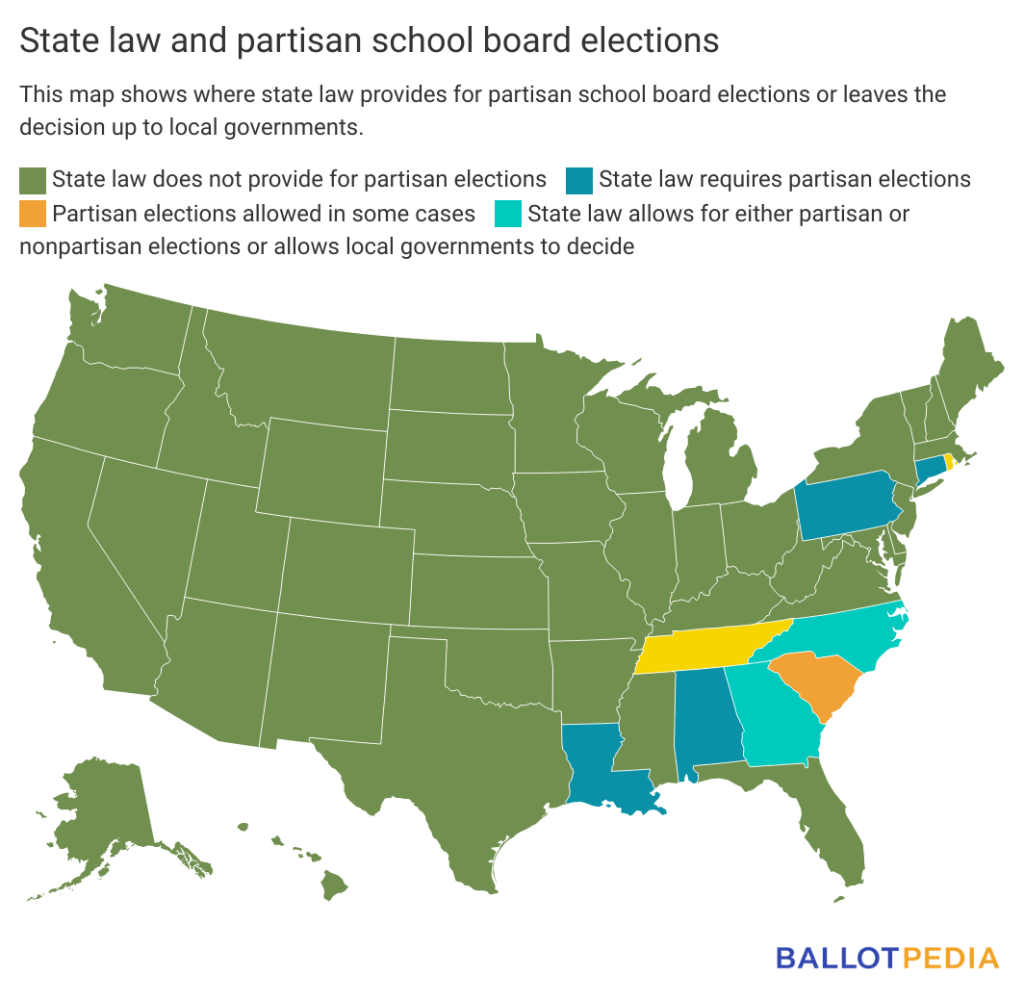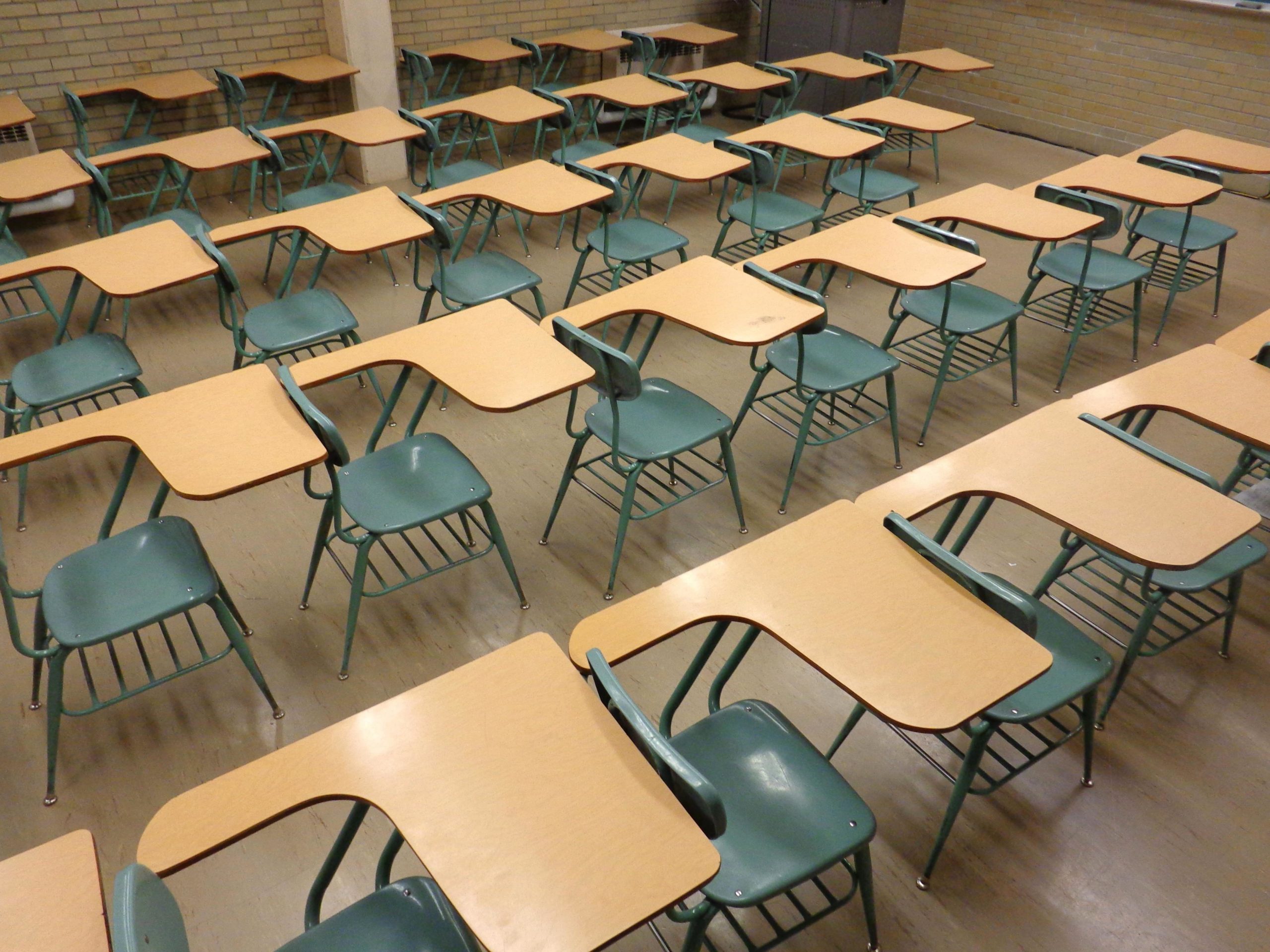On Feb. 8, the Indiana House Committee on Education voted 6-4 to approve House Bill 1428, which would allow school districts to conduct partisan elections. The bill now goes to the full House.
In Indiana and 41 other states, state law requires that school board candidates run in nonpartisan elections. Even so, these elections over the last few years have increasingly reflected the conflicts playing out in state and federal politics. In 2022, elected officials and state and local parties endorsed candidates.
Bills like HB 1428 are not unique to Indiana. Legislators in Arkansas, Kentucky, and Montana have, since January, introduced measures to require partisan school board elections. On Jan. 24, Florida Gov. Ron DeSantis (R) proposed making school board elections partisan, saying, “the reality is people should be able to run for office how they want to run for office. They have a First Amendment right to do that. They can identify with a party or not.”
Arkansas, Florida, Indiana, and Montana have Republican trifectas, but Kentucky is a divided government—Republicans control the state legislature while a Democrat controls the governor’s office.
HB 1428 would not require partisan school board elections. Instead, it would allow districts to implement partisan elections through one of two mechanisms—a vote from the school board or a referendum process that would leave the decision to voters. Voters would need to collect 500 signatures, or signatures from 5% of voters in the district, to put the choice of partisan elections on the ballot.
Below is an overview of state laws related to partisan school board elections:
- In 41 states and the District of Columbia, state law requires nonpartisan school board elections.
- Alabama, Connecticut, Louisiana, and, with some exceptions, Pennsylvania automatically allow partisan school board elections or party labels to appear on the ballot. These four states have a combined 878 school districts and 7,652 elected school board members. That’s about 7% of all school districts in the country.
- Georgia, Rhode Island, Tennessee, North Carolina, and South Carolina either explicitly allow for partisan or nonpartisan elections or give local authorities enough control over elections to effectively allow the option. These five states have a combined 554 school districts and 3,342 elected school board members.

Some districts in North Carolina and Georgia hold partisan elections while others do not. As of 2018, at least 36 county school districts in North Carolina had adopted partisan elections. According to the Georgia School Board Association in 2021, 109 of the state’s 180 school districts have nonpartisan elections, leaving 71 with partisan elections.
Tennessee joined Georgia and North Carolina in allowing—but not requiring—districts to hold partisan school board elections on Nov. 12, 2021, when Gov. Bill Lee (R) signed HB9072 into law. The law says candidates can run as the representative of a political party if a county party committee “elects to conduct school board elections on a partisan basis.” In districts holding partisan elections, the law says “political parties may elect to nominate a candidate under party rules rather than by primary election.”


